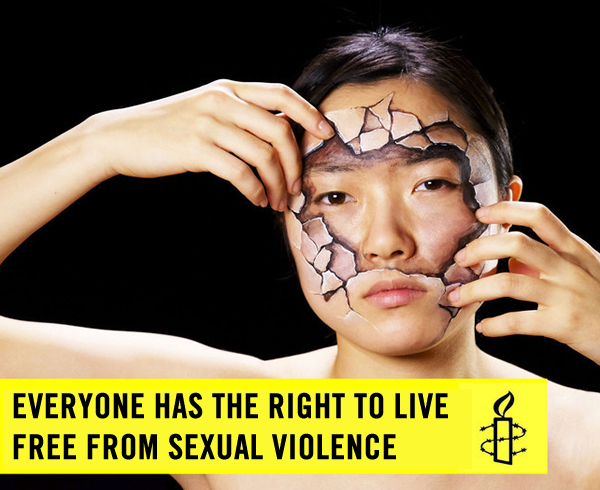
By: Jihane Bergaoui, Amnesty International USA, Country Specialist for Morocco and the Western Sahara
This past week I traveled to Tunisia to watch my colleagues from Amnesty Tunisia hand deliver over 198,000 signed petitions from Amnesty International members worldwide, calling on the Tunisian authorities to end discrimination against women and girl survivors of sexual violence.

Thanks to all of you who took action and contributed to this notable outpouring of support, Tunisian officials not only personally accepted our petitions at a highly publicized press conference in Tunis, but they also proclaimed their commitment to take specific measures to combat gender-based violence and enact a legislation that would further enshrine and protect women’s rights in Tunisia. Every signature played a role in helping us win this important victory!
The atmosphere at the conference was charged with hope and excitement as the numerous Amnesty International activists and women’s rights organizations’ delegates cheered with enthusiasm when Mohamed Salah Ben Ammar, Tunisia’s Minister of Health stated that: “The Ministry (of Health) is working to create a legal medical department in Charles Nicolle Hospital, which will house a judicial unit specialized in gender-based violence to accommodate women who are victims of spousal violence (including rape).” The Minister also asserted that the medical treatment of women who have suffered from sexual violence must be free of charge.
Neila Chaabane, Tunisia’s Secretary of State for Women and Families—who was also present at the conference, declared that:
“We will not accept this (gender-based) violence, and this problem concerns all Tunisians, men and women. This is a battle that affects the entirety of the society, and oppresses half of its members.”
She added that the draft legislation must acknowledge and remedy all forms of violence against women—including physical, sexual, psychological, and economic violence.
2014 has seen historical advances for women’s rights in Tunisia as this small North-African country adopted a new constitution in January that established strong constitutional protections for women, and officially withdrew all of its reservations to the Convention on the Elimination of All Forms of Discrimination against Women (CEDAW) in May. With this renewed commitment to eliminating gender-based violence, Tunisia continues to break barriers for women in the Middle East and North Africa region.

While this week presented an important victory for women’s rights in the Maghreb, there is still much work to be done to protect survivors of sexual violence against continued exploitation from their abusers.
Please join us from November 25th to December 10th, 2014 as we continue to call on the Tunisian, Moroccan and Algerian authorities to provide survivors of sexual violence with efficient legal remedies and effective social and medical services, as part of our annual 16 Days of Activism Against Gender Violence campaign.
You can take action by signing our online petition, or by standing in solidarity with survivors of sexual violence in the Maghreb by uploading a photo of yourself holding a sign with a solidarity message to our campaign Tumblr page.
